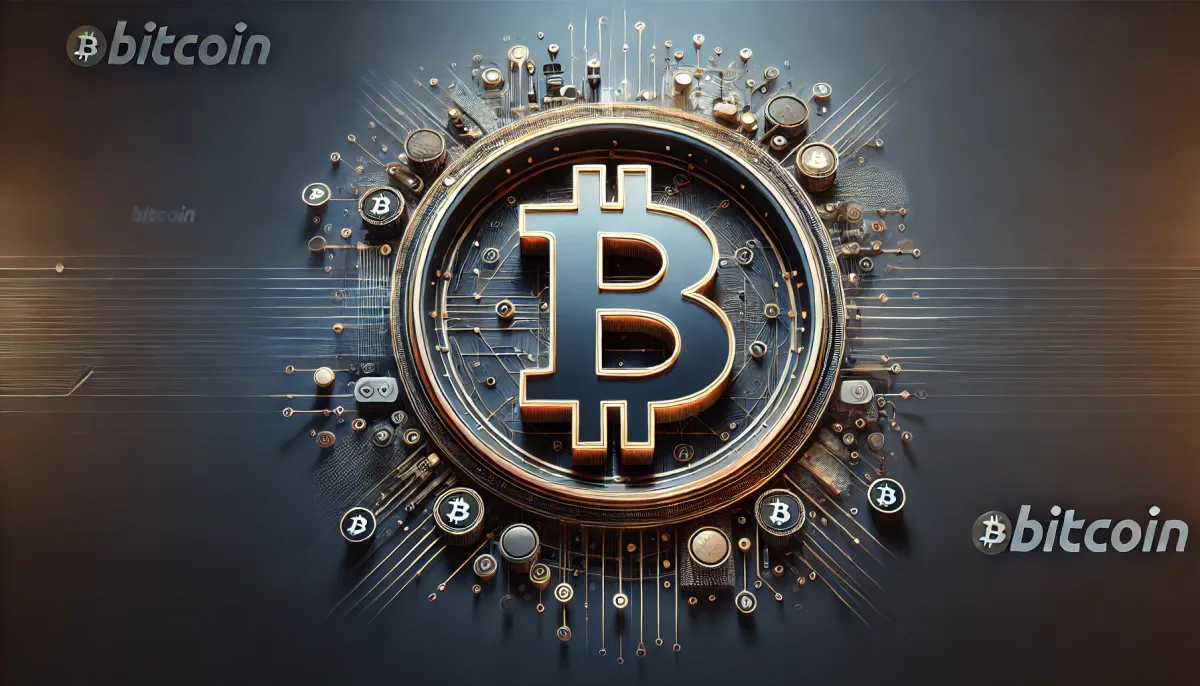Bitcoin as a Competitive Advantage in a Fiat-Debased Economy
The October 23, 2024 episode of the TFTC podcast features Parker Lewis discussing the critical mistake Bitcoin holders make by not using Bitcoin as a medium of exchange, focusing too narrowly on its role as a store of value.

- My 'briefing notes' summarize the content of podcast episodes; they do not reflect my own views.
- They contain (1) a summary of podcast content, (2) potential information gaps, and (3) some speculative views on wider implications.
- Pay attention to broadcast dates (I often summarize older episodes)
- Some episodes I summarize may be sponsored: don't trust, verify, if the information you are looking for is to be used for decision-making.
Summary
The October 23, 2024 episode of the TFTC podcast features Parker Lewis highlighting the importance of using Bitcoin not just as a store of value but as a medium of exchange. The discussion examines the dangers of relying on fiat currency in an inflationary world and how businesses can protect themselves by adopting Bitcoin payments. The insights shared offer clear strategies for leveraging Bitcoin to safeguard economic resilience and promote healthier market incentives, particularly for small businesses facing inflationary pressure.
Take-Home Messages
- Bitcoin as a medium of exchange: Businesses and consumers should view Bitcoin as a transactional tool, not just a long-term asset.
- Fiat currency debasement is undermining business sustainability, making Bitcoin adoption crucial to protect purchasing power.
- Bitcoin payments provide a hedge against inflation, offering small businesses a path to economic stability in volatile markets.
- Fiat incentives lead to poor market outcomes, particularly in industries like food production; Bitcoin can help realign these incentives for better quality.
- Adopting Bitcoin early provides businesses with a competitive advantage, securing a more loyal, forward-thinking customer base.
Overview
Parker Lewis opens the October 23, 2024 episode of the TFTC podcast by arguing that many Bitcoin holders are overlooking Bitcoin’s true potential as a medium of exchange. He emphasizes that using Bitcoin in daily transactions unlocks its real value, as it fosters a more robust trading ecosystem. This contrasts sharply with the traditional view of Bitcoin as a store of value, which, according to Lewis, limits its broader utility in today’s economy.
The discussion then shifts to the detrimental effects of inflation and fiat currency debasement on both consumers and small businesses. Lewis highlights that inflation is eroding the purchasing power of fiat currencies, and businesses are particularly vulnerable to these pressures. He proposes that Bitcoin adoption offers a way for businesses to avoid the inflationary spiral, helping them maintain price stability while fostering healthier economic relationships with customers.
The podcast also touches on the role of monetary incentives in industries like food production, where fiat currency drives producers to lower the quality of products to maintain profitability. Bitcoin, with its inherent resistance to debasement, offers an alternative system that encourages better-quality products by stabilizing long-term purchasing power. This shift could promote healthier consumer choices and a more sustainable business model for producers.
Lastly, the conversation covers how small businesses can gain a competitive edge by adopting Bitcoin payments early. Lewis points out that Bitcoin's role as a sound currency allows businesses to build stronger, inflation-resistant economic models. This strategy not only secures the business's future but also attracts a customer base aligned with Bitcoin's values of financial sovereignty and sustainability.
Stakeholder Perspectives
- Small Business Owners: Many small businesses face significant risk from fiat currency inflation and need alternatives to protect their margins. Bitcoin offers a pathway to stabilizing pricing and avoiding inflationary pressures.
- Bitcoin Holders: Holders of Bitcoin may focus too much on its store of value aspect, missing out on the benefits of using Bitcoin as a medium of exchange for everyday transactions.
- Policymakers: Policymakers need to consider the impact of inflation on small businesses and explore ways to create a supportive environment for Bitcoin payments to become more accessible.
- Consumers: Rising inflation in fiat currencies is decreasing consumer purchasing power, and Bitcoin presents an alternative that could preserve wealth and promote healthier market outcomes.
Implications
The discussion emphasizes the need for businesses to adopt Bitcoin as a payment method to mitigate the risks of fiat currency devaluation. As inflation erodes the value of traditional money, businesses that rely solely on fiat face growing financial instability. Bitcoin, by contrast, offers a hedge against inflation, allowing businesses to maintain stable pricing and protect their financial futures. This transition can significantly improve the resilience of small businesses, especially in sectors heavily affected by fiat-driven poor incentives.
Furthermore, widespread Bitcoin adoption could realign economic incentives in various industries, particularly those distorted by fiat policies, such as food production. By promoting sound money principles, Bitcoin can foster better quality production and healthier consumer choices, ultimately benefiting both consumers and producers. These changes are likely to have far-reaching effects, reshaping local economies and creating a more stable, inflation-proof marketplace.
Future Outlook
Looking ahead, businesses that adopt Bitcoin early stand to gain a significant competitive advantage as inflation continues to erode the value of fiat currencies. By leveraging Bitcoin’s ability to maintain purchasing power over time, businesses can attract a customer base seeking to transact in sound money. This shift will likely accelerate Bitcoin’s role as a key payment method, particularly for small businesses navigating inflationary pressures.
In the long term, Bitcoin adoption could reshape broader economic incentives, promoting higher quality goods and services across industries. The realignment of incentives away from fiat-driven cost-cutting toward sustainability and quality will benefit both consumers and producers, creating healthier market dynamics. The next steps involve educating businesses and consumers about these benefits, ensuring a smoother transition from fiat reliance to Bitcoin integration.
Information Gaps
- How can businesses protect themselves from the long-term effects of fiat currency debasement? As fiat currencies continue to debase, businesses need clear strategies to mitigate the effects. This research could focus on Bitcoin’s potential to provide stability in pricing and operational costs.
- What are the main barriers to widespread Bitcoin payment adoption by small businesses? Identifying and addressing the barriers—whether technical, educational, or regulatory—is crucial for driving Bitcoin’s adoption as a medium of exchange.
- What strategies can accelerate the adoption of Bitcoin payments in small and medium-sized businesses? Research should focus on practical steps businesses can take to integrate Bitcoin payments into their operations with minimal disruption.
- How do fiat monetary policies incentivize poor quality in consumer products, particularly in the food industry? Understanding the link between fiat currency and market distortions will clarify how Bitcoin could promote higher-quality production.
- How can Bitcoin adoption by local businesses strengthen community economic resilience? Bitcoin offers an alternative to fiat currency’s volatility, and this research can explore how local businesses can use it to build stronger, more sustainable economies.
Broader Implications
Bitcoin’s Role in Mitigating Inflation
As inflation continues to destabilize fiat-based economies, Bitcoin provides a robust alternative for individuals and businesses seeking to preserve purchasing power. Its deflationary nature and predictable issuance make it a strong hedge against the devaluation of traditional currencies. Widespread adoption of Bitcoin could shift economic dynamics, enabling businesses to operate more sustainably in high-inflation environments.
Bitcoin as a Strategic Reserve for Businesses
Businesses that integrate Bitcoin into their operations as a reserve asset could shield themselves from the volatility of fiat currencies. By maintaining a portion of their reserves in Bitcoin, companies can reduce exposure to inflation while benefiting from Bitcoin’s long-term appreciation. This practice may become increasingly common as businesses seek alternatives to fiat currencies for preserving wealth.
Local Economic Resilience through Bitcoin Adoption
Bitcoin adoption at the local business level could bolster community economic resilience. As global markets become more volatile due to inflationary pressures, local economies that adopt Bitcoin may develop stronger ties with their customer base and enjoy a more stable financial environment. This shift can also foster innovation, as businesses explore new ways to integrate Bitcoin into their operations.
Policy and Regulatory Considerations
Policymakers face the challenge of creating regulations that balance innovation with economic stability. As more businesses adopt Bitcoin, governments will need to craft regulatory frameworks that protect consumers while allowing for the growth of Bitcoin-based commerce. Failure to establish clear guidelines could hinder Bitcoin’s broader adoption and limit its potential to alleviate inflationary risks.



Comments ()